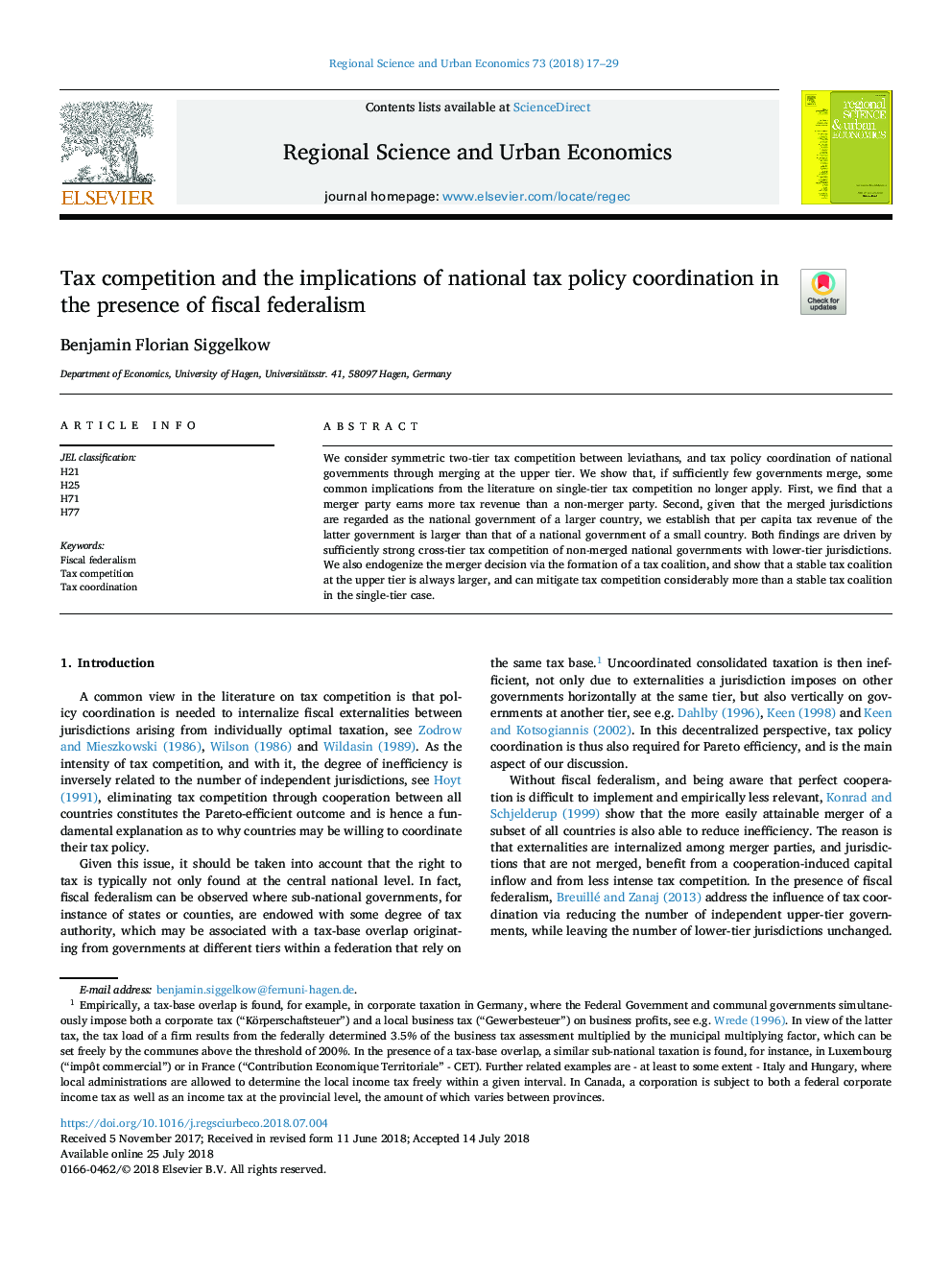| Article ID | Journal | Published Year | Pages | File Type |
|---|---|---|---|---|
| 7383585 | Regional Science and Urban Economics | 2018 | 13 Pages |
Abstract
We consider symmetric two-tier tax competition between leviathans, and tax policy coordination of national governments through merging at the upper tier. We show that, if sufficiently few governments merge, some common implications from the literature on single-tier tax competition no longer apply. First, we find that a merger party earns more tax revenue than a non-merger party. Second, given that the merged jurisdictions are regarded as the national government of a larger country, we establish that per capita tax revenue of the latter government is larger than that of a national government of a small country. Both findings are driven by sufficiently strong cross-tier tax competition of non-merged national governments with lower-tier jurisdictions. We also endogenize the merger decision via the formation of a tax coalition, and show that a stable tax coalition at the upper tier is always larger, and can mitigate tax competition considerably more than a stable tax coalition in the single-tier case.
Related Topics
Social Sciences and Humanities
Economics, Econometrics and Finance
Economics and Econometrics
Authors
Benjamin Florian Siggelkow,
